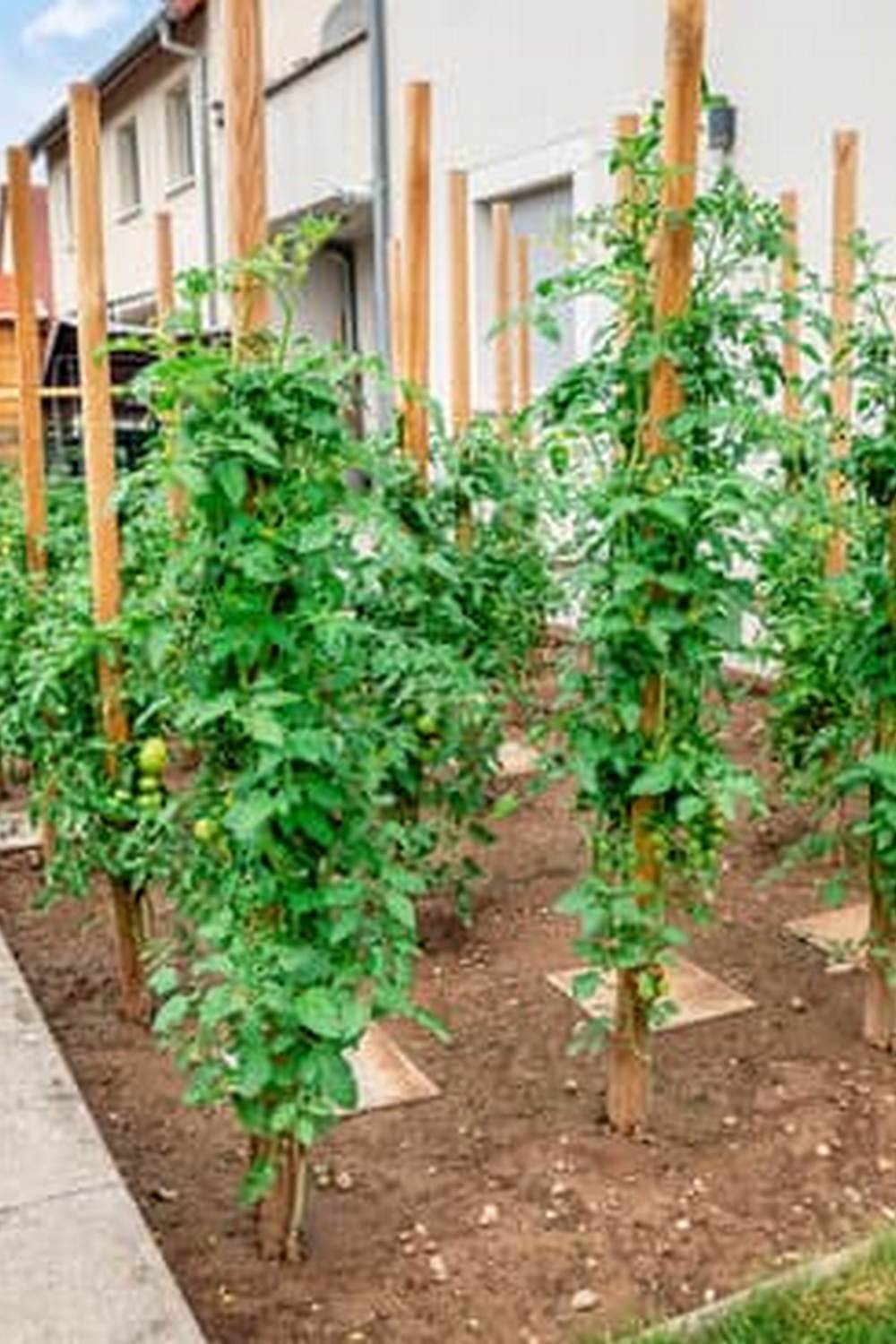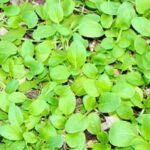Northern Michigan vegetable gardening offers a unique opportunity for enthusiasts to cultivate a variety of crops in a specific climate. The region’s cooler temperatures and extended growing season provide an ideal environment for growing a range of vegetables. Whether you’re a seasoned gardener or just starting, understanding the nuances of Northern Michigan’s climate and growing conditions can be key to a successful harvest.
With its chilly winters and moderate summers, Northern Michigan presents its own set of challenges and advantages when it comes to vegetable gardening. From cold-hardy varieties that thrive in the cooler temperatures to strategic planting schedules that take advantage of the longer daylight hours, there’s much to explore and learn about cultivating vegetables in this region. By delving into the best vegetables that flourish in Northern Michigan’s climate, gardeners can ensure a bountiful harvest throughout the seasons.
Planning your vegetable garden layout is crucial in maximizing space and sunlight in Northern Michigan. Proper soil preparation and amendments play a vital role in ensuring healthy plant growth and high yields.
Additionally, knowing how to effectively deal with pests and diseases while also mastering harvesting techniques can make all the difference in enjoying the fruits of your labor. Stay tuned as we delve deeper into the intricacies of Northern Michigan vegetable gardening, offering valuable insights and practical tips for a rewarding experience.
Best Vegetables to Grow in Northern Michigan
When it comes to Northern Michigan vegetable gardening, choosing the right vegetables that are suited for the specific climate and growing conditions is essential for a successful harvest. Here are some top vegetable crops that thrive in Northern Michigan, including cold-hardy varieties that can withstand the region’s fluctuating weather:
- Root Vegetables: Root vegetables like carrots, beets, radishes, and potatoes are well-suited for Northern Michigan’s cooler temperatures. These vegetables can be planted early in the season and are also great for storing over winter.
- Greens: Leafy greens such as kale, spinach, lettuce, and Swiss chard are cold-tolerant and can be grown well into the fall months in Northern Michigan. They provide a nutritious addition to your garden and can be harvested continuously.
- Brassicas: Crops like cabbage, broccoli, cauliflower, and Brussels sprouts do well in Northern Michigan’s climate. These vegetables thrive in cooler temperatures and can even improve in flavor after exposure to frost.
In addition to these cold-hardy varieties, other vegetables like tomatoes, peppers, and cucumbers can also be grown successfully in Northern Michigan with proper care and protection from late frosts. When planning your vegetable garden in this region, consider rotating crops each year to prevent disease build-up in the soil and maximize yields.
To further enhance your Northern Michigan vegetable gardening experience, consider incorporating native plants like wild leeks or ramps into your garden for a taste of the local flora. These unique additions not only add variety to your harvest but also support local biodiversity and ecosystems. By selecting the right vegetables for your region and utilizing best practices in cultivation, you can enjoy a bountiful harvest from your Northern Michigan vegetable garden all season long.
Planning Your Vegetable Garden
When it comes to planning a vegetable garden in Northern Michigan, maximizing space and sunlight are key factors for a successful harvest. Before starting your garden layout, consider the orientation of your space to ensure that your plants receive adequate sunlight throughout the day. Most vegetables require at least 6-8 hours of direct sunlight, so plan accordingly to optimize their growth.
In addition to sunlight, spacing is essential for proper plant development and air circulation. When designing your garden layout, take into account the mature size of each vegetable plant to prevent overcrowding. This will help minimize competition for nutrients and reduce the risk of disease. Raised beds can be an excellent choice for vegetable gardening in Northern Michigan as they provide good drainage and can be customized to fit your specific space requirements.
Furthermore, consider companion planting when planning your vegetable garden layout. Certain plants have beneficial relationships when grown together, such as deterring pests or enhancing flavor. By strategically placing complementary vegetables next to each other, you can create a more harmonious and productive garden. Researching companion planting specific to northern Michigan vegetable gardening can help you make the most out of your growing season.
| Beneficial Relationships | Examples |
|---|---|
| Deter pests | Marigolds planted near tomatoes |
| Enhance flavor | Basil planted near tomatoes |
Soil Preparation and Amendments
Northern Michigan vegetable gardening enthusiasts understand the critical role that soil quality plays in the success of their crops. The unique climate and conditions in Northern Michigan require special attention to soil preparation and amendments to ensure that vegetables thrive in this region. By understanding the importance of soil health and taking steps to improve it, gardeners can achieve better yields and healthier plants.
To enhance the quality of soil for northern Michigan vegetable gardening, consider the following tips and strategies:
- Conduct a soil test: Before planting your vegetable garden, it is essential to test the soil to determine its pH levels, nutrient content, and composition. Soil testing kits are readily available at local gardening centers or through your county extension office.
- Amend the soil accordingly: Based on the results of your soil test, amend the soil with organic matter such as compost, manure, or peat moss to improve its texture and fertility. Incorporating organic materials will help retain moisture, improve drainage, and provide essential nutrients for plant growth.
- Practice crop rotation: To prevent nutrient depletion and reduce the risk of disease buildup in the soil, implement a crop rotation plan in your vegetable garden. Rotate plant families each season to maintain soil health and optimize yields.
By prioritizing soil preparation and amendments in your northern Michigan vegetable garden, you set a strong foundation for a successful growing season. Investing time and effort into enhancing soil quality will result in healthier plants, improved yields, and ultimately a more rewarding gardening experience in Northern Michigan.
Planting and Maintenance
When it comes to planting and maintaining a successful vegetable garden in Northern Michigan, there are key steps to follow to ensure a bountiful harvest. The unique climate of Northern Michigan with its cool temperatures and shorter growing season requires special attention to detail. To start your vegetable garden off right, it is important to consider the frost dates in the region. Knowing when the last expected frost will occur will help you plan out your planting schedule accordingly.
One of the best ways to kickstart your vegetable garden in Northern Michigan is by beginning seeds indoors before transplanting them outside. This allows for a longer growing season and gives your plants a head start. When planting seeds indoors, make sure to provide adequate light, warmth, and moisture for germination. Once seedlings have established themselves and outdoor temperatures are suitable, they can be transplanted into your garden beds or containers.
To maintain a healthy vegetable garden in Northern Michigan throughout the growing season, regular watering is essential. Adequate water supply is crucial for plant growth and development, especially during hot summer months when evaporation rates are high. Mulching around plants can help retain soil moisture and reduce weed growth. Additionally, regular weeding, pruning, and fertilizing as needed will ensure that your vegetable garden thrives in the northern climate.
| Vegetable | Best Time to Plant |
|---|---|
| Carrots | Early spring or late summer |
| Tomatoes | After last frost date |
| Zucchini | Summer |
Dealing With Pests and Diseases
Common Pests in Northern Michigan
Northern Michigan vegetable gardening comes with its own set of pests that can wreak havoc on your crops. Some common pests that you may encounter include aphids, cabbage worms, flea beetles, and cucumber beetles. These critters can damage your plants and hinder your harvest if not properly managed. It is essential to keep an eye out for early signs of pest infestations to prevent them from spreading throughout your garden.
Organic Pest Control Methods
When faced with pest issues in your vegetable garden in Northern Michigan, opting for organic pest control methods is not only beneficial for the environment but also safe for consumption. One effective method is companion planting, where certain plants are grown together to repel pests naturally. For instance, planting marigolds around your tomatoes can deter nematodes and other harmful insects. Additionally, using insecticidal soaps or neem oil sprays can help combat pesky pests without harmful chemicals.
Preventing Diseases in Your Vegetable Garden
In addition to pests, diseases can also pose a threat to your vegetable crops in Northern Michigan. Common fungal diseases like powdery mildew and blight can spread quickly, especially in humid conditions. To prevent these diseases from taking over your garden, ensure proper spacing between plants for adequate air circulation and avoid overhead watering to reduce moisture on leaves.
Implementing crop rotation practices can also help minimize the risk of disease buildup in the soil over time. By staying vigilant and taking proactive measures, you can protect your vegetable garden from both pests and diseases in Northern Michigan’s unique climate.
Harvesting and Preserving
Harvesting
Knowing when to harvest your vegetables is crucial to ensure that you enjoy them at their peak flavor. In Northern Michigan, where the growing season may be shorter than in other regions, it’s essential to pay attention to the maturity of your crops. Different vegetables have specific signs that indicate they are ready for harvest.
For example, tomatoes should be firm and fully colored, while lettuce should be crisp and vibrant. Keep an eye on the ripeness of your vegetables and harvest them promptly to avoid any loss of flavor or texture.
Preserving
Once you’ve harvested your vegetables, knowing how to store and preserve them can help extend their shelf life and allow you to enjoy your garden produce for longer. Proper storage is key to maintaining the freshness of vegetables. Some vegetables, like root crops and winter squashes, can be stored in a cool, dark place with good ventilation.
Other vegetables may need blanching and freezing for preservation, such as beans or peas. Canning or pickling certain vegetables can also be a great way to enjoy them year-round.
Tips for Longer Shelf Life
To maximize the shelf life of your harvested vegetables, consider investing in a root cellar or a dedicated storage area with proper temperature and humidity levels. Storing your produce in breathable containers or bags can help prevent rotting or premature spoilage.
Additionally, rotating your stock by using older produce first can ensure that nothing goes to waste. By following these tips for harvesting and preserving your vegetable harvest in Northern Michigan, you can savor the flavors of your garden well beyond the typical growing season.
Community Resources and Events
In Northern Michigan, vegetable gardening enthusiasts have access to a wide range of community resources, farmers markets, and gardening events that can greatly enhance their gardening experience. Whether you are a seasoned gardener or just starting out, these local offerings provide valuable support, inspiration, and opportunities to connect with like-minded individuals who share a passion for growing their own food.
One of the highlights for vegetable gardeners in Northern Michigan is the abundance of farmers markets scattered throughout the region. These markets not only offer fresh, locally-grown produce for purchase but also serve as a hub for exchanging gardening tips, exploring new varieties of vegetables, and fostering a sense of community among growers. Visiting farmers markets can be an excellent way to learn about what grows well in the area and get ideas for your own garden.
Moreover, Northern Michigan boasts a vibrant gardening community that organizes various events such as workshops, seed swaps, plant sales, and garden tours. Engaging in these activities provides valuable learning opportunities, networking possibilities, and a chance to immerse yourself in the joy of gardening alongside fellow enthusiasts.
By actively participating in local events and connecting with other vegetable gardeners in the region, you can expand your knowledge base, hone your skills, and cultivate a deeper appreciation for the rich agricultural heritage of Northern Michigan. So dive into the world of northern michigan vegetable gardening today.
Frequently Asked Questions
When Should I Start My Garden in Northern Michigan?
In Northern Michigan, it is best to start your garden after the last frost date, typically around late May or early June. This allows for warmer temperatures and reduced risk of cold damage to your plants, ensuring a successful growing season.
What Vegetables Grow Best in Michigan?
Michigan’s climate is suitable for a variety of vegetables to thrive. Some vegetables that grow best in Michigan include tomatoes, peppers, cucumbers, zucchinis, green beans, carrots, and lettuce. These vegetables are well-suited to the state’s growing conditions and can produce abundantly with proper care.
What Vegetables Grow Best in Northern Gardens?
When it comes to vegetables that grow best in northern gardens, cold-hardy crops are key due to the shorter growing season and cooler temperatures. Vegetables like kale, spinach, radishes, peas, beets, broccoli, and cabbage tend to perform well in northern gardens. These crops can tolerate colder weather and mature relatively quickly, making them ideal choices for northern climates.

If you’re looking to get into vegetable gardening, or are just looking for some tips on how to make your current garden better, then you’ve come to the right place! My name is Ethel and I have been gardening for years. In this blog, I’m going to share with you some of my best tips on how to create a successful vegetable garden.





